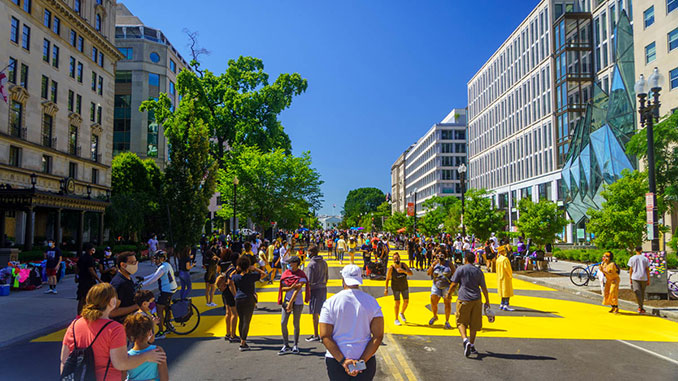A diverse range of cultures, ethnic groups, and socioeconomic origins may be found in Accra. The city’s diverse population is a major asset that contributes to its unique charm, challenges it, and makes it more lively. To fully grasp Accra’s essence and to take advantage of its chances and challenges, one must have a thorough comprehension of its complexities.
A Rich Historical Heritage:
From the pre-colonial era, the city attracted people from various parts of the region, drawn by opportunities in commerce and agriculture. The arrival of European traders further diversified the population, leading to the establishment of distinct communities like Jamestown and Usshertown, each with its own unique cultural identity shaped by interaction with European powers.
Ethnic and Linguistic Mosaic:
Today, the capital of Ghana boasts a complex ethnic and linguistic landscape. While the Ga people are considered the indigenous group, the city is home to a multitude of other ethnic groups from across Ghana and beyond. Akan speakers, particularly Twi speakers, form a significant portion of the population, while other groups like the Ewe, Dagbani, and Hausa are also well-represented.
Although English serves as the official language, Ga, Twi, and various other Ghanaian languages are commonly spoken and comprehended. This multilingual setting enhances the lively ambiance of Accra, where fragments of diverse languages resonate in markets, taxis, and throughout the streets.
Socio-economic Stratification:
Accra’s demographic diversity extends beyond ethnicity and language to encompass a wide range of socio-economic backgrounds. The city is home to a growing middle class, aspiring professionals, and entrepreneurs, alongside a significant population living in informal settlements and struggling with poverty. This economic disparity creates visible contrasts, with affluent neighborhoods existing alongside areas facing challenges related to access to basic services, sanitation, and education.
The Impact of Migration:
Migration plays a crucial role in shaping Accra’s demographics. The city attracts individuals from rural areas seeking better economic opportunities, as well as foreign migrants from across Africa and beyond. This influx of people contributes to the city’s rapid growth, but also puts pressure on infrastructure and resources. Managing this growth sustainably and equitably remains a key challenge for city planners.
Opportunities and Challenges:
Although English serves as the official language, Ga, Twi, and various other Ghanaian languages are commonly spoken and comprehended. This multilingual setting enhances the lively ambiance of Accra, where fragments of diverse languages resonate in markets, taxis, and throughout the streets.
However, this diversity also requires careful management. Issues of inequality, social cohesion, and access to resources need to be addressed to ensure that all residents benefit from the city’s prosperity. Promoting understanding and respect between different ethnic and socio-economic groups is crucial for building a harmonious and inclusive society.
Looking Ahead:
As Accra continues to grow and evolve, understanding and embracing its demographic diversity will be essential for its sustainable development. Policies that promote inclusivity, address inequality, and celebrate cultural heritage are crucial for harnessing the potential of its diverse population. By recognizing the strengths and addressing the challenges associated with its demographic makeup, Accra can continue to thrive as a vibrant and dynamic city that welcomes all who call it home.
Accra’s demographic diversity is not just a statistic; it’s the lifeblood of the city. It’s a complex and dynamic force that shapes its culture, its economy, and its future. By acknowledging and embracing this diversity, Accra can build a more equitable, prosperous, and inclusive society for all its residents.
